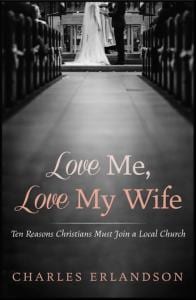The Single Best Book on the Sociology of Religion
Acts of Faith represents the culmination of more than 30 years of research in the sociology of religion by Rodney Stark (and also Roger Finke). It is Stark’s magnum opus, putting together in one place the distillation of all of his important research, and is the single best book on the sociology of religion that I’ve come across. While no single theory, even a good one, can explain religion adequately, Acts of Faith represents the single best attempt I’ve yet seen. Like any good theory, it has power to explain a wide range of phenomenon. While it’s not a book above criticism, many of the more negative reviews misunderstand what Stark and Finke are actually saying. I first came across this book when I was pursuing my Ph.D. in Religious Studies.
Stark and Finke begin by properly destroying the secularization thesis as it was taught for several decades. The old secularization thesis stated things such as “religion is false and harmful” and “religion is doomed.” Stark and Finke’s response is to properly understand the ways in which this older secularization thesis has been radically revised. Not only is religion alive and kicking in the world, but the religious piety of the past was also not as great as has been assumed.
The heart of the book deals with what the authors refer to as “the religious economy.” While there are certainly other legitimate ways of analyzing religion, Stark and Finke’s model has great explanatory power. For them, “a religious economy consists of all the religious activity going on in any society.” One of the most important corollaries of this view is that “The capacity of a single religious firm to monopolize a religious economy depends upon the degree to which the state uses coercive force to regulate the religious economy.” This statement is profoundly true and useful: it helps explain, for example, why religion can look strong in state-sponsored churches and yet be inwardly weak. It also helps explain how the Christendom of Europe could give way to the current atheism. In contrast to “religious economies” that are regulated by the state, countries that have unregulated religious economies have religious “competition,” which leads to higher levels of religious commitment. This helps explain, for example, why religion is still a lot stronger in America (historically an unregulated religious economy) than in Europe (historically regulated religious economies).
Along the way, Stark and Finke help explain many other human factors associated with religion and religious behavior. One of the most important of all, which everyone should be familiar with, is the notion that the density of social networks helps explain religious conversion: we’re much more likely to convert to a new religion or denomination if the people who are closest to us are involved with the new religion or denomination.
The book is tightly argued and clearly presented, but the best feature of all is the back of the book (pages 277-288) where Stark and Finke list, in order, all of the definitions and propositions they have made throughout the book. This is an amazing summary of the book and makes it very easy to rehearse their arguments and to access them for further thought and research. I wish every academic book had this feature!
There’s a lot more here than I can explain in a review, but I highly recommend this book for anyone who is serious about the sociology of religion or wants to gain a better insight into the future of religion in the world. Other works by Rodney Stark are also worth reading, but this is the best of the best!












